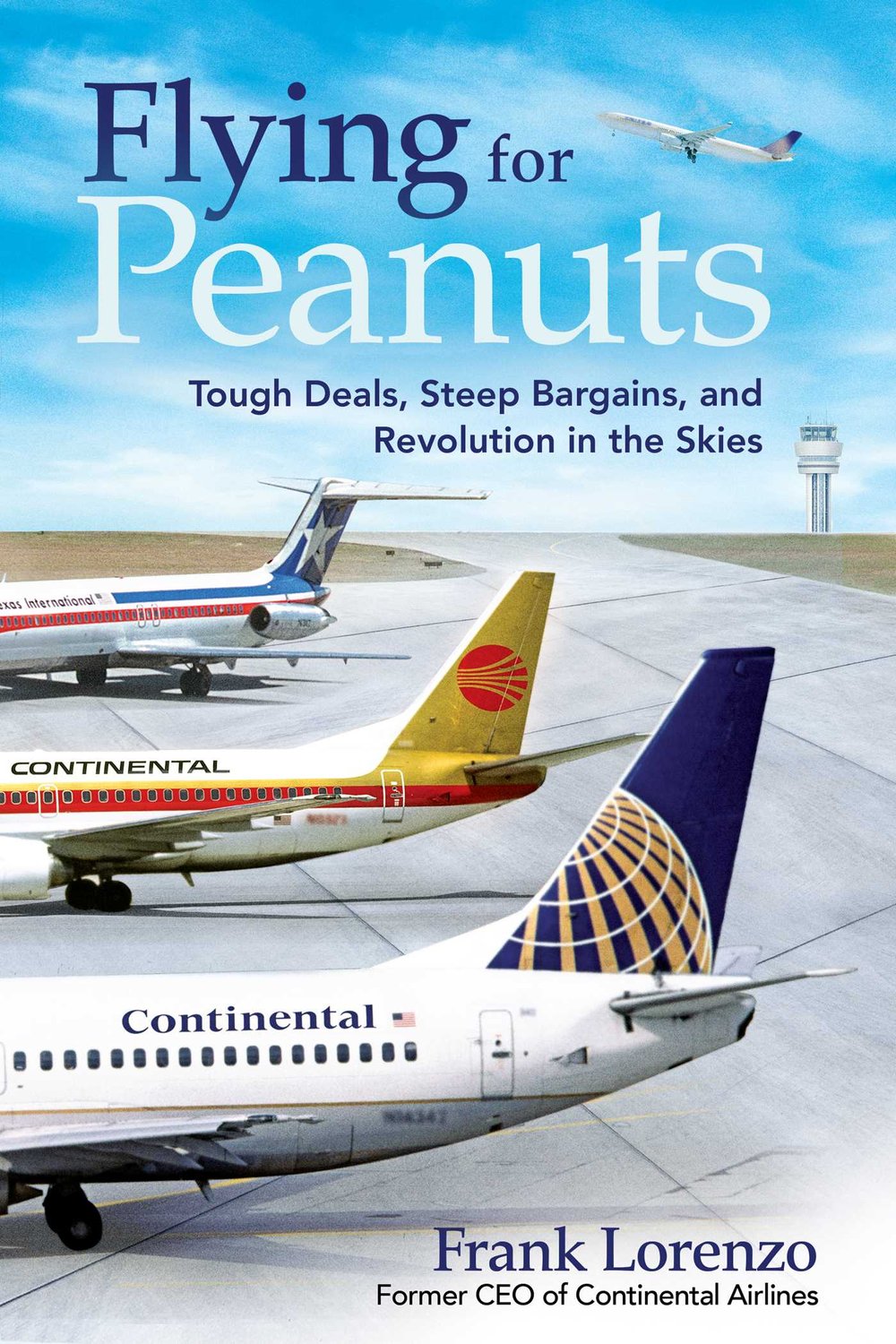Flying for Peanuts
How an Entrepreneur Navigated the Airline Business

Lessons in business and life from the executive who helped shape the modern airline industry
Frank Lorenzo is the epitome of the American dream. A first-generation American and entrepreneur, Lorenzo started an airline advisory business in his mid-twenties based on little more than bravado and ultimately rose to control the largest fleet of airplanes in the free world. Flying for Peanuts recounts how Lorenzo grew his empire from nothing and helped shape the airline industry as we know it.
Flying for Peanuts explains how the son of Spanish immigrants put himself through Columbia College by driving a Coca-Cola truck and then grew the fledgling advisory into ownership of Texas International Airlines. At TIA, he fought through the industry’s transformation, in part by introducing the new, low-cost model for fares that are a major part of the industry today. From there, through a series of shrewd moves and a hostile takeover, Lorenzo became CEO of Continental Airlines, a large loss-making west coast airline at the time.
This airline business memoir gives a play-by-play of the high-stakes negotiations that got Lorenzo there, including faceoffs with Carl Icahn and a chapter devoted to selling the Eastern Airlines Shuttle to Donald Trump, soon to become the doomed Trump Shuttle. It details Lorenzo’s competition with upstarts like Southwest Airlines and the clashes with unions that led Fortune’s to name him one of “America’s toughest bosses,” along with accolades from his employees. Along the way, Lorenzo highlights the strategies and tactics that propelled his growth.
Flying for Peanuts is a compelling read for anyone interested in the American airline industry and anyone wanting to apply a trailblazing executive’s lessons for their own career success.

Frank Lorenzo, or more formally, Francisco, is the son of Spanish immigrants who came to New York in the early 20th Century speaking no English and looking for a better life. The United States offered endless opportunities for them and, eventually, for Frank.
Growing up in the shadows of New York’s La Guardia Airport, Frank became enamored with airlines at a young age. With some help from his parents and working as a delivery truck driver and other jobs, he put himself through Columbia College and Harvard Business School.
Then, after working office jobs at TWA and Eastern Airlines, he joined with a college classmate and began a career of entrepreneurialism that started with a two-person aviation advisory firm operating initially out of New York’s Donnell Public Library and then, after completing a transaction, moving to a small office on the top floor of the Pan Am building.
In a few years, Frank and his partner were able to purchase a small regional carrier, Texas International Airlines (TIA), that was teetering on bankruptcy, which Lorenzo went in to run. TIA’s debts had to be restructured, as did its revenue base and its competitive position. With Airline deregulation on the horizon in 1978, Frank and his team introduced drastically discounted fares as a government sanctioned experiment. Labeled "peanuts fares," the lower prices sharply stimulated traffic and brought major attention to the small airline.
From this humble start, Frank and his team set sights on acquiring so-called “major” airlines to grow TIA into a survivable national carrier. Failing to acquire National Airlines (but reaping a healthy profit) and TWA, Texas International made a bid for Continental Airlines that ultimately was successful. Other acquisitions set TIA on the path to becoming the largest airline group in the free world.
In 1990, at age 50, Frank decided to move on from the life of running airlines and founded Savoy Capital, Inc. to foster his investment and charitable interests.
